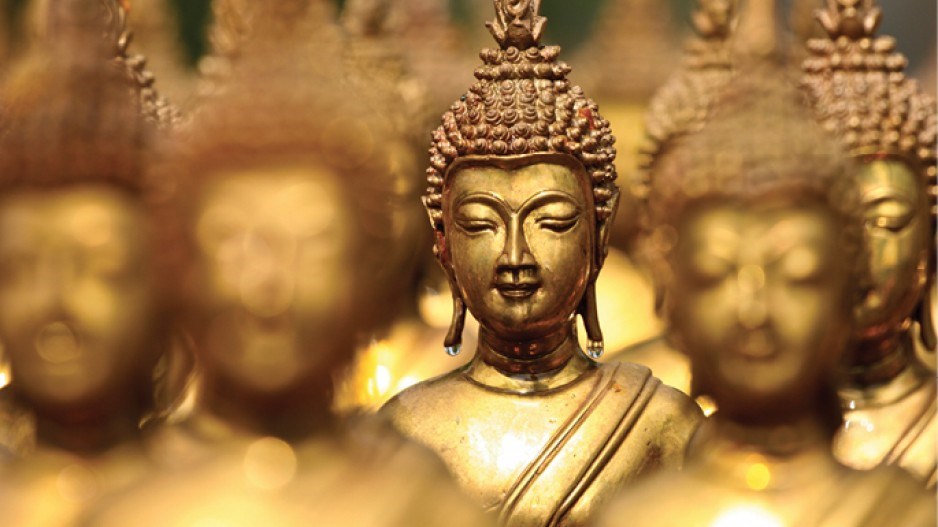The arrival of undisputed new leaders in Indonesia and Thailand, Southeast Asia's largest economies, has ended months of political uncertainty and calmed jittery markets.
But as Gen. Prayuth Chan-ocha, head of a military regime in Thailand, and President Joko “Jokowi” Widodo in Indonesia start constructing their administrations, it is evident that both governments are burdened with a good deal of economic uncertainty. Investors will view both markets with hope tempered by a good deal of healthy skepticism about whether the new leaders are up to the challenges they face.
Gen. Prayuth launched a coup in May, claiming Thailand needs the stability of an interim military government after years of political chaos marked by outbreaks of street violence. The military-dominated national assembly appointed him prime minister on August 22, and King Bhumibol Adulyadej endorsed that selection last week.
But military regimes are by their very nature unpredictable institutions, prone to eccentric decision-making and corruption. Prayuth has from the start tried to portray his administration as investor-friendly and ready to put its shoulder behind several initiatives that have been bogged down since the government of ousted prime minister Yingluck Shinawatra was besieged by political unrest late last year.
To that end, Thailand's Board of Investment has approved a new strategy for the 2015-to-2021 period. The new approach pushes investment in value-added manufacturing – especially projects with substantial high-technology and ecological components – puts a stronger focus on research and development and favours small and medium-sized enterprises.
The downside for some investors will be the withdrawal of tax incentives and the waiver of import duties on some raw materials and machinery for industries that do not meet the new criteria for value-added enterprises.
While domestic Thai investors will probably respond positively to the apparent stability provided by military rule, foreign investors are likely to be much more cautious.
In Indonesia, the Constitutional Court on August 21 ended weeks of uncertainty following the July election and announced that Jokowi was the winner. While this gives Jokowi far more legitimacy as Indonesia's president than Prayuth has as Thailand's prime minister, there are just as many reasons for the markets to be cautious.
The fundamental question is whether Jokowi is up to the job. He burst onto the national stage a couple of years ago after making a name for himself as the mayor of a provincial city who delivered on his promises. This reputation swept him into office as the governor (mayor) of Jakarta in 2012. Although his charisma and announcements about his intentions attracted enough public support to propel him into the presidency, he has very little administrative record on which to be judged.
He comes to office with some problematic files on the presidential desk, and without control of parliament to ensure easy passage of whatever policies he does decide to follow.
The rise of economic nationalism in this nation of 250 million people is troubling foreign investors, especially in the resource industries. The outgoing administration got itself tied in knots over attempts to force mining companies to establish processing plants in Indonesia by penalizing ore exports. This only achieved the threat of a mass exodus by miners, and Jokowi will have to try to find a compromise.
He also faces a more broad-based domestic problem of a major gap between government revenues and the lavish subsidies previous governments have given Indonesians. The main money pit is health and welfare programs, which are not only vastly expensive, but also ineffective because of poor management and too much control by corrupt local officials. •
Cleaning up this mess is a major headache for Jokowi, and the best he can hope for is slow and painstaking progress.
Thailand's new prime minister, Gen. Prayuth Chan-ocha, has signalled to his neighbours that while they may not like military regimes, he intends to be a trustworthy regional partner.
His junta, known as the National Council for Peace and Order, which took power in a May 22 coup, has announced it will go ahead with investment in a troubled and stalled $11 billion development project in neighbouring Burma, also known as Myanmar.
The building of a deep-sea port and industrial complex on a 240-square-kilometre site at Dawei, on Burma's Indian Ocean coast, is planned to be a major regional trade and infrastructure hub for the 10 countries of the Association of Southeast Asian Nations (ASEAN). It is envisaged as an important demonstration of common purpose after ASEAN forms its economic community, modelled on the European Union, in 2015.
But for months the Dawei project, scheduled to be completed by 2020 in two main phases, has appeared dead.
First, the new civilian regime in Burma signalled the end of military rule and its own popular credentials by cancelling construction of a 4,000-megawatt coal-fired power plant on which the whole project depends.
Then, a Thai parliamentary subcommittee said it believed the cost estimates put forward by the Thai contractor in the project were only half the real numbers.
Questions about the viability of the project and political gridlock in Thailand before the May coup meant that funding from Bangkok was no longer available.
Dawei is only 250 kilometres from the Thai capital, Bangkok, and the first phase of the scheme is to build road and rail links to the newly constructed deep-water port.
This will allow Thailand and other southeast Asian countries to cut up to three days off transportation times to and from the west, by allowing ships to avoid the Strait of Malacca between Singapore and Indonesia.




